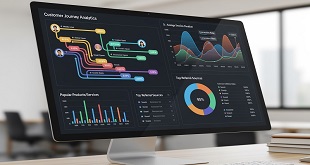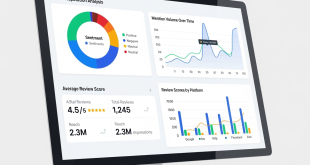Big Data is more than a technological revolution, and its use predicts a radical business transformation. Its purpose is to leverage the invaluable data it collects from its customers, products and operations to successfully restructure core business processes.
It has become paramount for business and brands to learn how to apply business models to big data, in order to achieve a significant benefit to the company, identifying appropriate metrics and to explore the tools on Big Data and advances in advanced analytics.
It is now possible to create new business values thanks to big data, with integrated storage, analytics, and applications. Big Data Helps drive efficiency, quality, and personalized products and services, producing higher levels of customer satisfaction and experience. Big Data has become ubiquitous, and organizations are providing the means for employees to make informed decisions, which are affecting their business.
The era of big data gets faster and faster and what we do today informatically a few years ago was unthinkable. The amount of information to which businesses have to deal allows them to better understand the consumer and offer a more tailored advertising according to the needs of each consumer.
We are entering an era of big personal data, and it is predicted that its impact on our lives will exceed the Internet. Data will respond with certainty questions we could never answer, everyday questions, or deep questions about exactly how we will live.
Big data and businesses
Big data refers to the processing and analysis of huge data banks, so disproportionately large that it is impossible to treat them with the tools of conventional databases and analytics.
The trend is part of an environment that does not sound strange to us: the proliferation of web pages, image and video applications, social networking, mobile devices, apps, sensors, internet of things, etc. able to generate, according to IBM, more than 2.5 quintillion bytes up to the point that 90% of the world’s data have been created over the past two years.
We are talking about an absolutely relevant environment for many aspects, from the analysis of a natural phenomenon, such as, weather or seismic data to environments such as health, safety, or, of course, the business field.
And it is precisely in this area where the business operates where there is an emerging interest makes Big data into something like “the next buzzword”, the word definitely hear coming from everywhere: technology vendors, tools, consultants, etc.
In a time when most managers have never sat in front of a simple page of Google Analytics and mightily surprised when they see what it can do, comes an overview of tools designed for large and immensely more complex things can make sense.
What exactly is behind the buzzword? Basically, the evidence that the analysis tools fail to convert into useful information for business management data generated. Greater capacity for data generation in history involves the adaptation of tools and processes
In the future: an overview of increasing adoption, and many, many questions. Implications for users and their privacy or business and potential or actual reliability of the results obtained: as the MIT Technology Review, says great responsibilities.
For now, one thing is certain in Big data is here to stay and will bring many benefits and challenges to brands and small businesses.
Thanks to Jose Capelo for this article.
 Entrepreneur Resources Your source for small business information
Entrepreneur Resources Your source for small business information





